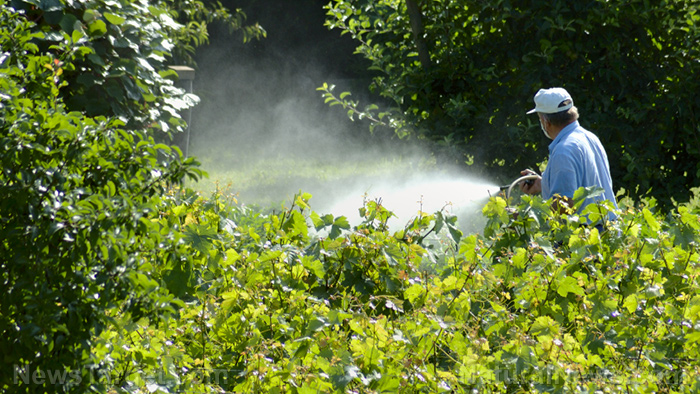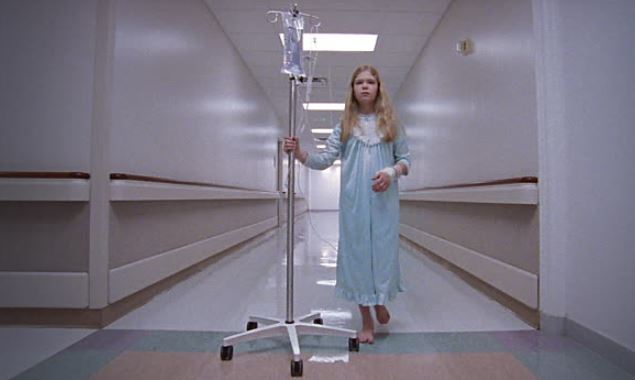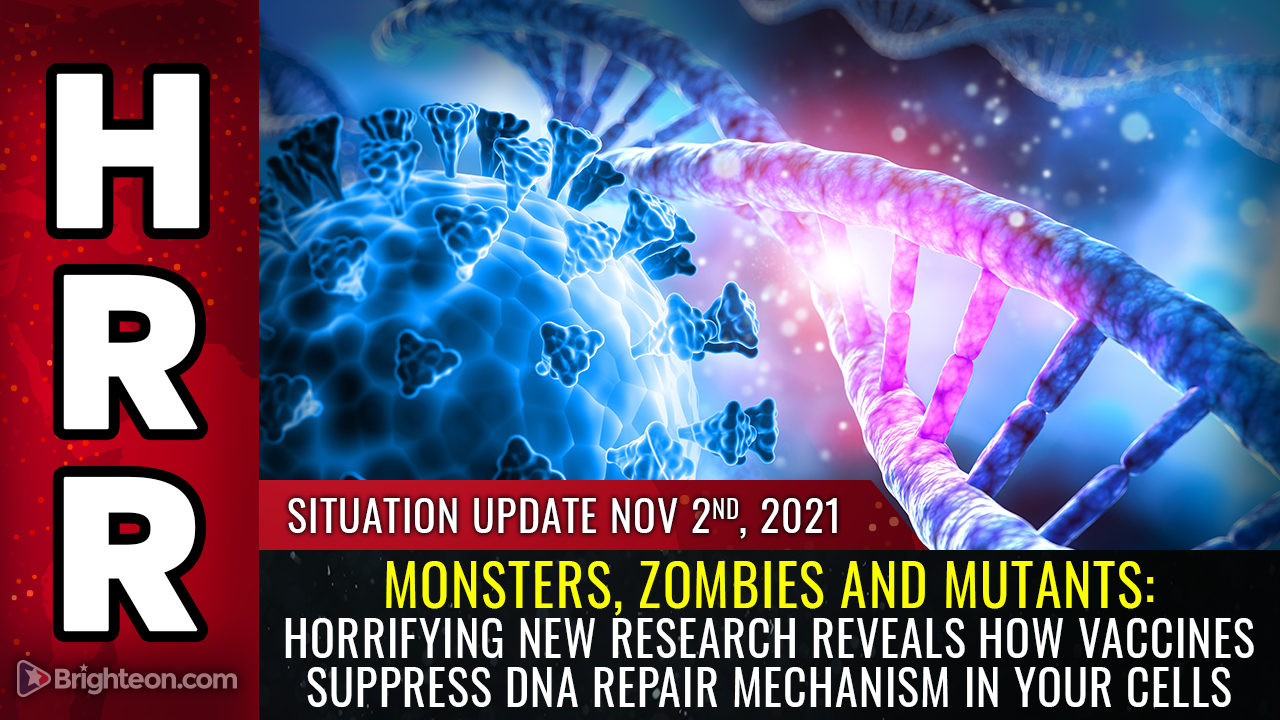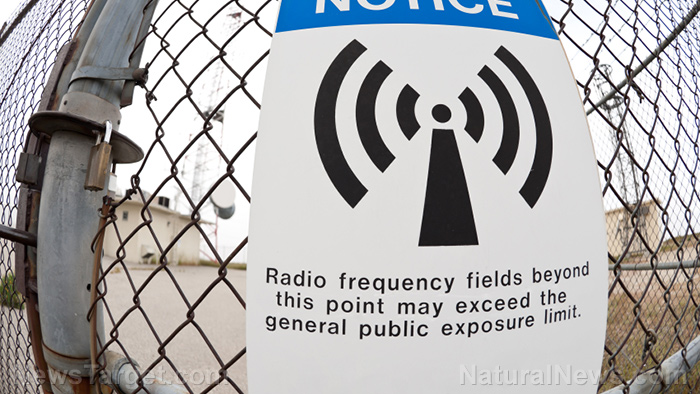Exposure to pesticide malathion linked to greater risk of chronic kidney disease
12/17/2021 / By Zoey Sky

A study published in the International Journal of Environmental Research and Public Health found that malathion, the most popular organophosphate insecticide in the U.S., significantly increases the risk of developing chronic kidney disease (CKD).
Data from the Centers for Disease Control and Prevention (CDC) shows that at least 37 million (15 percent) of adults in America have chronic kidney disease (CKD). More alarmingly, 90 percent of people with CKD are unaware that they have the condition.
Even if someone has severe kidney disease, only three out of five individuals with the condition know that they are sick.
Chronic kidney disease is linked to severe and fatal complications
Chronic kidney disease, or chronic kidney failure, causes damage to your kidneys and results in loss of kidney function. Your kidneys filter extra water and wastes out of the blood to make urine and ensure that your body works properly by balancing the salts and minerals, such as calcium, phosphorus, potassium and sodium, that circulate in the blood. Additionally, the kidneys produce hormones that help control blood pressure, make red blood cells and promote bone strength.
In time, kidney disease can get worse and cause kidney failure. If your kidneys fail, you will need dialysis throughout your whole life or a kidney transplant to maintain your health. If you have CKD, your kidneys are damaged and are unable to filter blood as they should. This damage can cause wastes to build up in the body, leading to health issues like heart disease, high levels of potassium in the blood, pulmonary edema, seizures and irreversible kidney damage.
Unfortunately, the early stages of kidney disease are often symptomless and some cases often go unnoticed until it is too late. More advanced kidney disease may cause symptoms such as chest pain, confusion, fatigue, loss of appetite, nausea, shortness of breath, urination that becomes less or more frequent and vomiting. CKD can also progress to end-stage kidney failure, which is fatal unless you undergo dialysis or a kidney transplant.
Malathion exposure can increase chronic kidney disease, risk by 25 percent
For the study, researchers looked at the effects of pesticides on kidney health in the U.S. population. They worked with more than 41,000 participants. The researchers also analyzed data from the USA National Health and Nutrition Examination Survey (NHANES).
Data from animal studies have previously revealed that exposure to malathion increases markers of kidney injury, like levels of serum creatinine and urea. Meanwhile, findings from human studies have linked malathion to kidney damage.
The researchers also wanted to learn more about the growing incidence of unexplained chronic kidney disease in tropical countries. Although conditions like diabetes and hypertension and aging are primary factors for CKD, international researchers have observed the growth of cases of CKD with no known cause, especially among agricultural workers in poorer sections of India and Sri Lanka. They theorized that environmental toxins like pesticides could be involved. The research team then set out to determine the possible effects of pesticides on kidney health in the U.S. (Related: EPA to ban the use of chlorpyrifos pesticide as it poses dangers to children.)
Study results revealed that malathion exposure was linked to a significant 25 percent increase in CKD in the United States. Study co-author Nicholas Osborne, an associate professor at the Queensland University School of Public Health, reported that there was evidence of altered kidney function in individuals people exposed to malathion. Malathion undeniably “increases the risk of low kidney function in the general US population,” concluded Osborne.
Malathion depletes the body’s glutathione levels
The World Health Organization (WHO) has categorized malathion as a “probable carcinogen,” and data from animal studies has linked the pesticide to birth defects and certain kinds of cancer. Additionally, it could also be an endocrine disruptor.
Experts suggest that malathion and other organophosphate pesticides are harmful because they reduce the metabolism of glutathione, your body’s most important natural antioxidant. This can then cause increased oxidative stress and disease.
Despite being classified as a probable carcinogen, malathion is licensed for agricultural and domestic use on fruits and vegetables. Malathion is also used for mosquito control in recreational areas and as a household pesticide for ant control.
You could also be exposed to malathion if you use products used to treat fleas and ticks on pets and some treatments for head lice.
High exposure to malathion may cause the following short-term effects:
- Accelerated heart rate
- Blurred vision
- Cramps
- Diarrhea
- Dizziness
- Excessive sweating
- Headaches
- Nausea
Minimize exposure to malathion and other environmental toxins to avoid various side effects
According to the Environmental Protection Agency (EPA), small amounts of malathion used for mosquito control probably won’t affect humans. However, Osborne warned that chronic exposure to pesticides in very small doses can still cause health problems.
To minimize exposure, remain inside or avoid areas sprayed with malathion for at least 30 minutes after application. Close windows and doors, turn off window air conditioners and close vents during spraying and for at least 10 minutes post-spray.
Don’t get into contact with surfaces in recently-sprayed areas. If you are exposed to these surfaces, wash your skin with soap and water. Always rinse homegrown and store-bought fruits and vegetables thoroughly before cooking or eating.
If you have pets, bring their food and water dishes inside. Cover ornamental fishponds if you see any neighbors spraying toxic chemicals.
The best way to reduce exposure to pesticides is to consume organic produce.
You can also boost your kidney health by making the following lifestyle changes:
- Exercising and maintaining a healthy weight.
- Quitting smoking.
- Not eating processed foods full of sodium.
- Avoiding nonsteroidal anti-inflammatory drugs (NSAIDs)
- Managing existing medical conditions that can harm your kidneys.
Watch the video below to know more about the negative side effects of malathion.
Eat organic produce and minimize your exposure to malathion to boost your kidney health. Visit Pesticides.news for more information on malathion and other harmful pesticides.
Sources include:
Tagged Under: agriculture, carcinogens, chronic kidney disease, CKD, environment, Glutathione, kidney disease, kidney health, malathion, toxic chemicals, toxins
RECENT NEWS & ARTICLES
COPYRIGHT © 2017 CANCER CAUSES NEWS




















